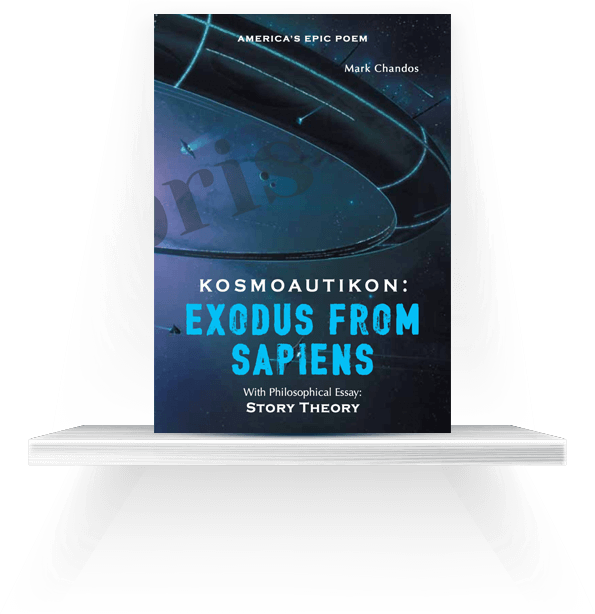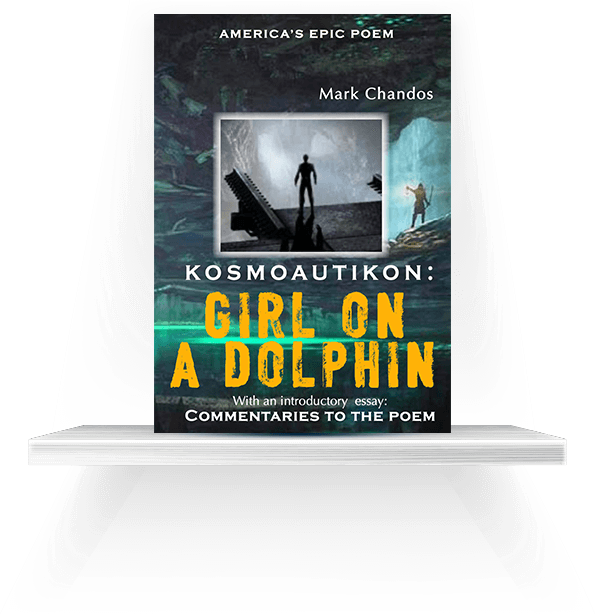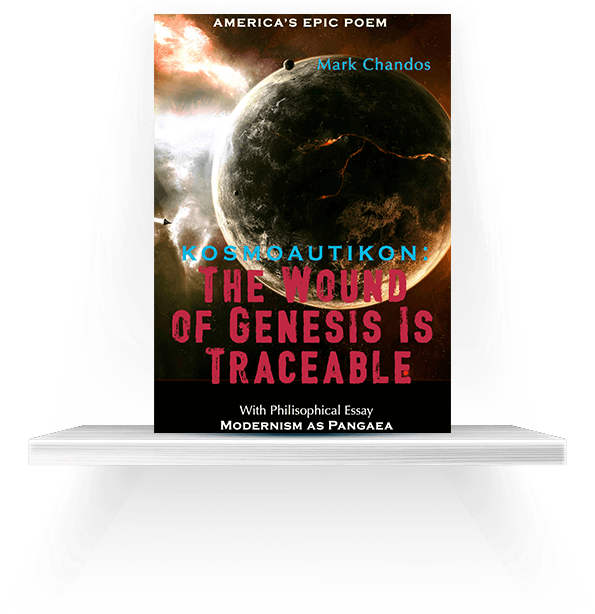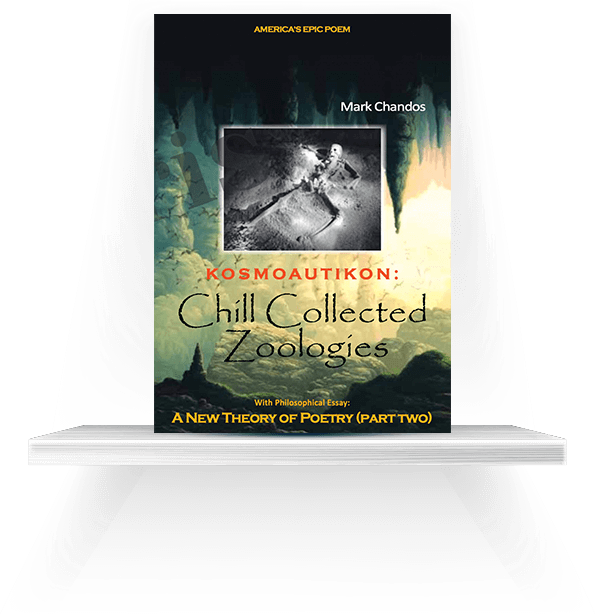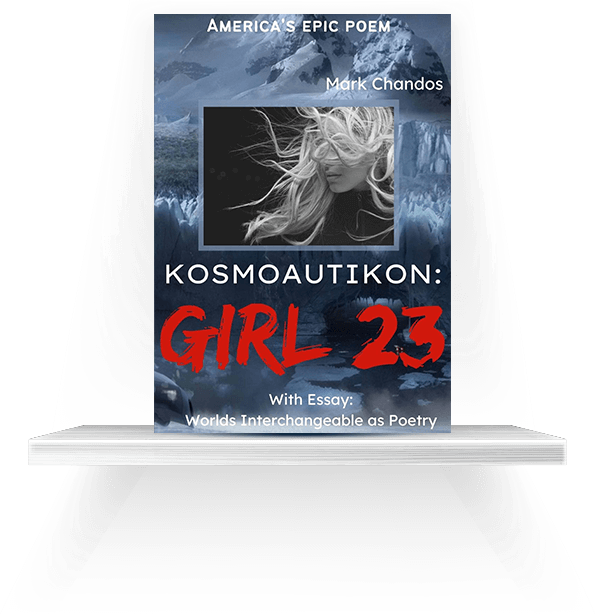The Great Debate: Should We Continue to Believe Modernism?

The Great Debate: Should We Continue to Believe Modernism?
Everything must be reduced in size—including Homo sapiens. Instead, modernism is set upon a path of eternal expansion. The endgame of modernism is a proliferation—until an inevitable collapse of earth’s resources. How long should we continue to believe in modernism?
Should we continue to believe what modernism tells us about the human condition? Do we really believe that the entire history of the Homo sapiens was waiting to have its brain chemicals “balanced” by new patented industrial pharmaceuticals? The following is the false information propagated by modernism: Since our DNA was always defective—the human brain chemicals were always imbalanced— pharmaceutical corporations have solved the imbalance of the human mind with their industrial medicines. Should we continue to believe? Yet this is the modernist narrative.
Are we really only free and vital when we possess the latest plastic consumer items—and take our information from devices only able to celebrate, replicate, or detect modern linguistic forms of life? Modernism chastens us for our scientific ignorance—demanding that we become more scientific—and then science reverses its oracles in the next decade. The end game of modernism is a continual stream of false information of human life. Modernism in, modernism out.
What is the message of modernism? Homo sapiens are scheduled to be replaced. The modern human is the product of an insidious marketing campaign—a linguistic reconstruction of the human genome. Modernism teaches that the idiomatic species that created modernism—
that is, Eurocentric males—are criminals of the earth—and must now be dispossessed of their world—exactly the same world they created.
What should we believe in the place of modernism? Story Theory, in contradistinction, accuses the modern interpretation of the human. Story Theory begins with the honest thesis that no human can account for his consciousness—and thus, is only able to make a story of his consciousness. That is, the human, when he attempts to explain his life, even in the first syllables, already transitions to story. This is Story Theory. It describes how the human mind operates. It is new.
Story Theory is a philosophy mature enough to take the long count of the human genome. Story Theory proves that modernism is a toxic agenda driven by a totalitarian ideology. In fact, we are not in desperate need of new means of food production for a human population that has long ago surpassed all hope of futurity, maturity, or decency. We do not require new energy sources to continue the (already) unstoppable proliferation of modern industrialism and sprawling mega-cities. We need the opposite of all these measures.
Modernism does not have the courage to even whisper the logical solution. Stunned in its own self-referent progressivism, modernism merely continues to proliferate hopeless populations, exploit ever new modernist marketing strategies, and eradicate any remaining non-modern societies. Modernism—despite its absurd internal contradictions—still dares to tell us 24/7 what to eat, what new medicines to accept, what speech and morality are allowed—and how to live under total surveillance. Never before did a state exist with tentacles of all-encompassing power— as the modern state. It is a danger here-to-fore never experienced by the human genome. Modernism is a war against the human soul. The end game of modernism is the eradication of Homo sapiens.
Modernism insists that we are free—but, in reality, it only ensures our eternal adolescence and dependency on the modernist superstructure. What is human life? The state will define the manners and mores of life. What is the universe? The state supported universities will define the material composition of the universe. What are the good and the beautiful? That is only good and beautiful that a liberal media advocates. The media makes no apology for exclusively reflecting liberal idealism. Its liberal, modernist bias is justified by insisting that it, alone, has the best interest of society. Modernism is thus a totalitarian ideology. It may advocate only the interest of modernist regimes. The anti-liberal rogue genius is excluded from this totalitarian utopia.
The salient point to be made is this: anything linguistics may construct (as modernism is a linguistic construct) a strong counter-linguistics can subsequently tear down. This is the necessity for a new theory of poetry—and the strong poet. To the surprised reader—a practicing, purchasing, and fully mortgaged modernist—this has to be explained with some competence.
What is needed is a new conception of the human condition that will eradicate modernism—and make a new advance with the human genome. The goal is to locate modernism into a position of a wounded morality— just like Christian priesthoods, Stalinism, Fascism, and paganism are today wounded moralities—no longer worthy of belief. Is liberalism fascist? We can test this. Liberalism has destroyed every previous human ideology. Liberalism, in its race for supremacy, has even mimicked the Christian virtues—empathy, brotherhood, equality—insidiously, only ensuring that the citizen has no rational cause to further seek human virtue in any other ideology—including any previously hegemonic religion. Every culture that comes into contact with modernism is eradicated. This includes the eradication of China, Japan, and India as separate cultures.
We may detect the hypocrisy of hostile liberal dialectics. Though an “enlightened,” rationalist, liberalism is hostile towards any religion, we may observe the liberalist state going out of its way to protect, advocate, and apologize for the Islamic faith. This is not so much to perpetuate the idea of a faith in god—rather it is to deconstruct any remnant of Christian privilege, prestige, or prominence in Western societies. When all faiths are exactly the same, and seen as equally anti-modern, they may all the more easily be eradicated. The proof? Most second or third generation Muslim person (or Catholic, Confucist, or Hindu) born in the West is seldom a continued adherent of the original faith. But they are always strong believers in modernism. This confirms the thesis. Modernism is set to replace all other human faiths.
The first liberalist assault of modernism, the secular French Revolution, also attempted a similar linguistic stratagem. The leaders of the French Revolution used the linguistic genius of “liberty, equality, brotherhood.” Yet their goal was actually only the destruction of a previous political hegemony. The result? When they got into power, executions began—of all—the poor, the good, the free, the equal, and the beautiful. Any dialectic, any strong linguistic ideology has only one objective. It seeks to eradicate all other dialectics in a race for supremacy. As with Christianity, Islam, Judaism, Communism, Maoism, and now, modernism—there is no exception to this rule.
The danger of liberalism (as any self-referent dialectic) is that it considers itself unable to sin. Modern democracies export free food and democracy to Africa, only to double their starvation and social chaos—all in the name of modernism. No good is done—how may the proliferation of life in permanent deserts and killing fields be a solution? Moderns do not see their sin of proliferation—for the sake of proliferation.
Modernism operates as if it is the last and final idiom of the human mind. The liberal, scientific state has no self-doubt—it dictates the total arena of human virtues, mores, and manners. There is currently no strong linguistic structure that can compete with a supreme modernism. This is the dangerous place where the modern human is positioned. There is no appeal to a separate non-modernist body to check and verify the health, soundness, or futurity of modernist human civilization. This totalitarianism is what a strong theory of poetry must oppose. This is the honest rage in Kosmoautikon.
Technology is so far developed that any organized government cannot avoid creeping to total surveillance over the citizen. There is no half-way house to any technological application. There is only a ruthless march to the final maturity of any technological innovation. No technology can be artificially restrained. As any idiom of human speech, technology likewise demands an empire of its own image—and will achieve empire of its idiom at any cost. There is no protocol for de-escalation of any human idiom (as technology). Modernism is the most ruthless empire ever built.
No modern state can thus avoid total surveillance and control of the intimate thoughts of the citizenry. Governments were formed for protection of citizens—not intimate control of citizens. So we must escape all forms of modern ideology—or be prepared to be replicated in a pattern of ruthless sameness. The final logic of socialist ideology is a ruthless sameness. Kosmoautikon illustrates the final logic of the modernism state. Replicants replace Homo sapiens.
Kosmoautikon tells the story of what happens when Western liberalism, as hegemonic modernism, is unable to reform or detect new information outside of a dangerously self-referent linguistic system.
The human mind is not free—until it is linguistically free from its own self- referent etymological patterns. Admittedly, since language is seamlessly affixed to our mindscape, the toxicity of our own linguistic patterns is hard to detect. Why? Because what other language should we speak but the modernism we were deeply trained and indoctrinated to cherish and celebrate? The malady is deep. The solution is an alternate linguistics. The requirement is for a strong poet. Or is modernism the final human interpretation of life? Should we continue to believe? What would the rogue male say?
No. We know that modernism is not the final station of human consciousness. Thus there is Kosmoautikon. The poet must enchant with his ferocity. He must stumble upon his own righteous speech. Slowly, a war of good and evil comes into focus.

